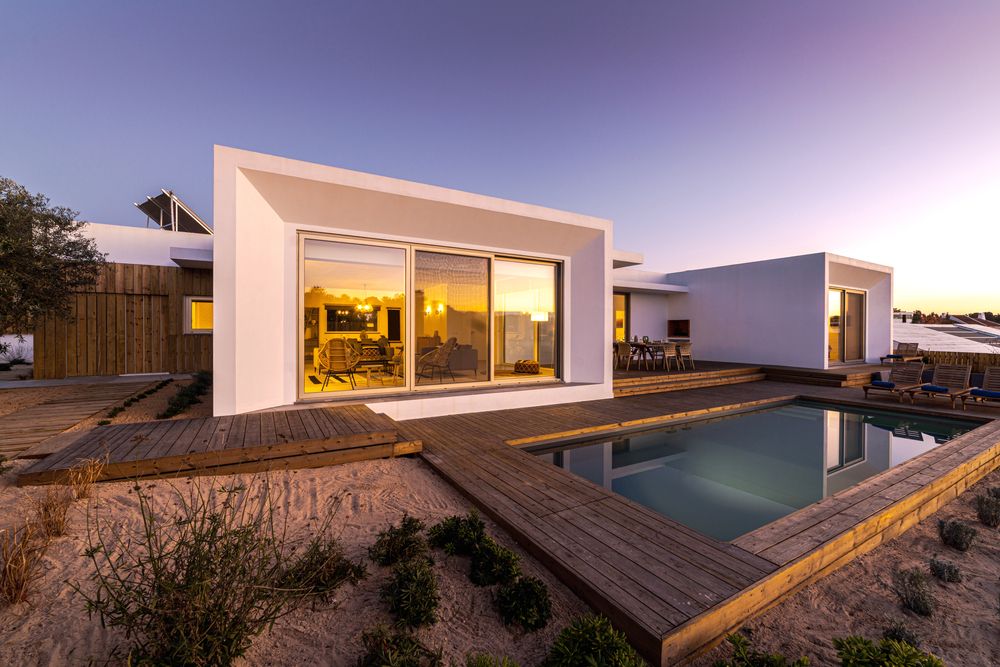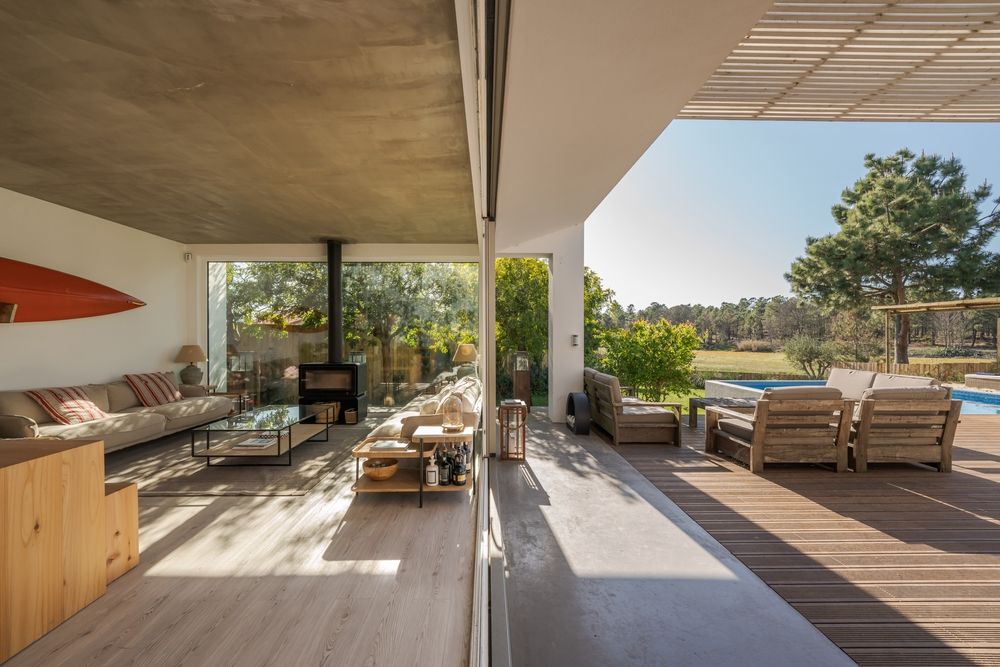The appeal lies in the calibre and variety of opportunities available. Portugal offers everything from sleek coastal developments and gated communities to discreet off-market villas tucked into quieter regions.
Meanwhile, the ability to buy off-plan often means access to prime locations before they reach wider circulation, while off-market deals can open doors to properties that never hit the public listings, further enhancing the luxury real estate appeal in Portugal.
However, like any substantial investment, success depends on understanding the nuances of different locations within the market. Investors need to be aware of regional price variations from the North to the South, even down to local districts in high demand.
Let’s explore some of Portugal’s most popular locations for purchasing real estate, the real estate buying process in Portugal, and some common pitfalls for international real estate investors in Portugal.
For more detailed insights into Portugal’s luxury real estate market, register for Portugal Pathways' upcoming webinar, 'Investing in Luxury New Homes in Portugal,' on August 26th at 4:00 PM Lisbon Time.
Portugal Luxury Real Estate Market Growth in 2025
Portugal’s luxury real estate market is leading Europe, recording the highest property price growth in the EU in the first half of 2025 with a 15.2% year-on-year increase—triple the EU average.
Investor confidence remains strong, with €13.2 billion in foreign direct investment flowing into Portugal over the past 12 months, of which €3.5 billion was directed into real estate, marking a 19% annual rise.
According to Ernst & Young, 84% of investors plan to expand operations in Portugal over the next year, while 77% expect its attractiveness to further improve in the next three years.
With GDP growth projected at 2.4% in 2025—well above the Eurozone average—Portugal continues to stand out as one of Europe’s most compelling destinations for high-net-worth individuals (HNWIs) and families.
Understanding Portugal’s Luxury Property Landscape
Luxury real estate in Portugal isn’t limited to one type of buyer or property style.
Lisbon attracts those seeking a cosmopolitan setting, with historic apartments, penthouse conversions, and riverfront developments in neighbourhoods such as Chiado and Príncipe Real.

Porto offers a blend of architectural heritage and growing international appeal, particularly in its central districts and Douro River surroundings, famous for exceptional wine and vineyards.
Northern Portugal, including areas like Viana do Castelo and the Minho region, is gaining attention from international buyers due to its combination of natural beauty and comparatively lower property values.
For many, the Algarve remains a popular choice- home to gated golf estates, clifftop villas, and beachfront retreats, especially around the Golden Triangle, consisting of Quinta do Lago, Vale do Lobo, Almancil, and Vilamoura.
Away from the tourist-heavy coastline, the Alentejo offers sprawling estates and historic townhouses.
Comporta, a coastal region in the Alentejo, has become one of Portugal’s most in-demand locations in recent years, attracting celebrities like George Clooney, Christian Louboutin, and Madonna.
Each region has its own price dynamics, infrastructure considerations, and rental potential, meaning location choice should align with both lifestyle goals and investment strategy.
Navigating the Buying Process
While property transactions in Portugal are generally secure, foreign buyers benefit from assembling the right team early on. A licensed real estate agent with local market expertise can provide access to both listed and off-market properties, often securing opportunities before they appear publicly.
Independent legal representation is equally important, ensuring due diligence is completed, titles are clear, and all permits are in order.
Buyers planning to renovate or build should verify planning permissions with the local municipal council, as older or rural properties sometimes have unregistered additions. Professional property inspections are also advisable to uncover any structural, electrical, or plumbing concerns before finalising a purchase.
For more detailed insights into the buying process in Portugal, register for Portugal Pathways' upcoming webinar, 'Investing in Luxury New Homes in Portugal,' on August 26th at 4:00 PM Lisbon Time.

Common Pitfalls for International Buyers and How to Avoid Them
Off-plan and off-market properties in Portugal can be excellent ways to secure unique opportunities, but buyers should approach them with care.
With off-plan purchases, construction timelines sometimes shift or finishes differ slightly from early plans. Choosing a reputable developer and ensuring your contract clearly sets out specifications and delivery dates helps provide peace of mind.
Off-market transactions often give buyers access to properties that never reach public listings, but the lack of price comparisons can make valuations tricky. Working with a trusted local agent and independent legal counsel ensures the process remains transparent and well-structured.
Staged payments during construction are common in off-plan projects, and buyers can feel more secure by requesting bank or insurance-backed guarantees for deposits. Likewise, while developers may share rental or resale projections, independent research offers a more realistic picture of long-term performance.
Financial Considerations and Hidden Costs
The purchase price is just one part of the investment. Buyers should factor in the Property Transfer Tax (IMT), Stamp Duty, legal and notary fees, and ongoing municipal property taxes (IMI) when purchasing property in Portugal.
These transaction costs typically total 6-8% of the property’s value. For those intending to rent their property, compliance with awareness of local licensing rules is essential, particularly in high-demand short-term rental zones like Lisbon, Porto, and certain Algarve municipalities.
Long-Term Ownership Planning
A luxury property in Portugal can be a personal residence, holiday home, or income-generating asset - but each option has its own legal and tax implications.
If the property will be vacant for part of the year, professional property management can ensure security, maintenance, and rental readiness.
Prospective owners should also consider how the property fits into their long-term plans, from resale potential to inheritance and succession arrangements.
For more detailed insights into Portugal’s luxury real estate market, register for Portugal Pathways' upcoming webinar, 'Investing in Luxury New Homes in Portugal,' on August 26th at 4:00 PM Lisbon Time.













